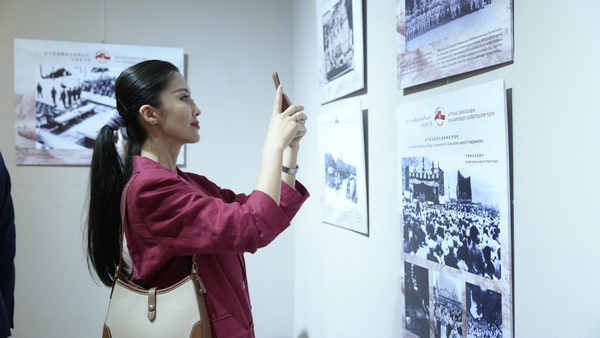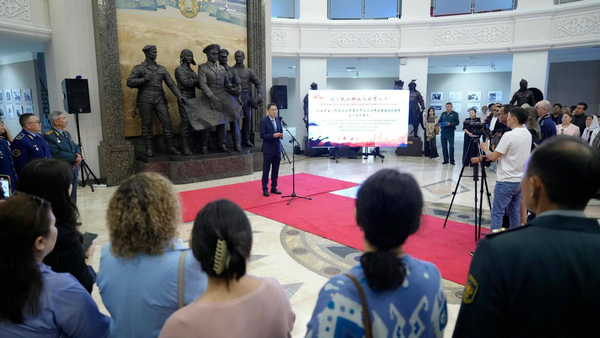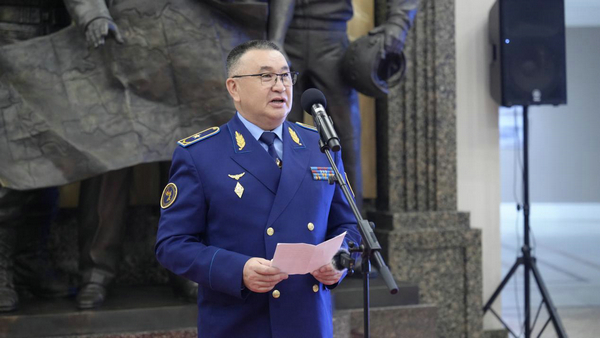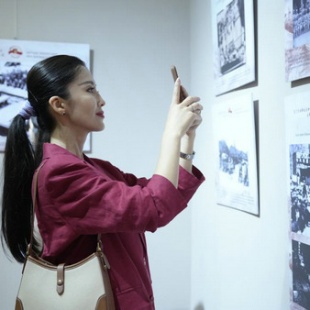Astana photo exhibition marks 80th anniversary of war victory


A themed photo exhibition commemorating the 80th anniversary of the victory in the Chinese People's War of Resistance Against Japanese Aggression (1931-45) and the World Anti-Fascist War, opened on Aug 21 at the Military Historical Museum of the Armed Forces of the Republic of Kazakhstan in Astana.
Sponsored by the Chinese embassy in Kazakhstan and the Ministry of National Defense of Kazakhstan, the exhibition was co-organized by the China Cultural Center in Astana and the Museum of the War of People's Resistance Against Japanese Aggression.
Themed "For National Liberation and World Peace", the exhibition, running for a month, is divided into four parts, displaying 125 precious historical photos. It presents a panoramic view of how Chinese people, under the leadership of the Communist Party of China, fired the first shot in the World Anti-Fascist War, went through 14 years of arduous struggle, and finally achieved the great victory.
Approximately 200 people attended the opening ceremony, including Han Chunlin, Chinese ambassador to Kazakhstan, Major General Askar Mustabekov, head of the National Defense University of the Republic of Kazakhstan, and military and political representatives.

In his speech, Han stated that the Party led the Chinese people in winning the great struggle for national liberation. As the main eastern battlefield during World War II, China made decisive contribution to the victory in the World Anti-Fascist War and the return of Taiwan to the Chinese mainland was an important outcome of World War II victory and part and parcel of the post-war international order, he added.
Han emphasized that China has always adhered to safeguarding the post-war international order and upholding true multilateralism, and is willing to work with all countries to create a prosperous and peaceful future.
Mustabekov pointed out that the history of China and Kazakhstan fighting side by side serves a solid foundation for the friendship and cooperation between the two countries. He also argued that the two nations should take history as a mirror, firmly defend the fruits of World War II victory, and unite to create a peaceful future.
Li Manxing contributed to this story.






































